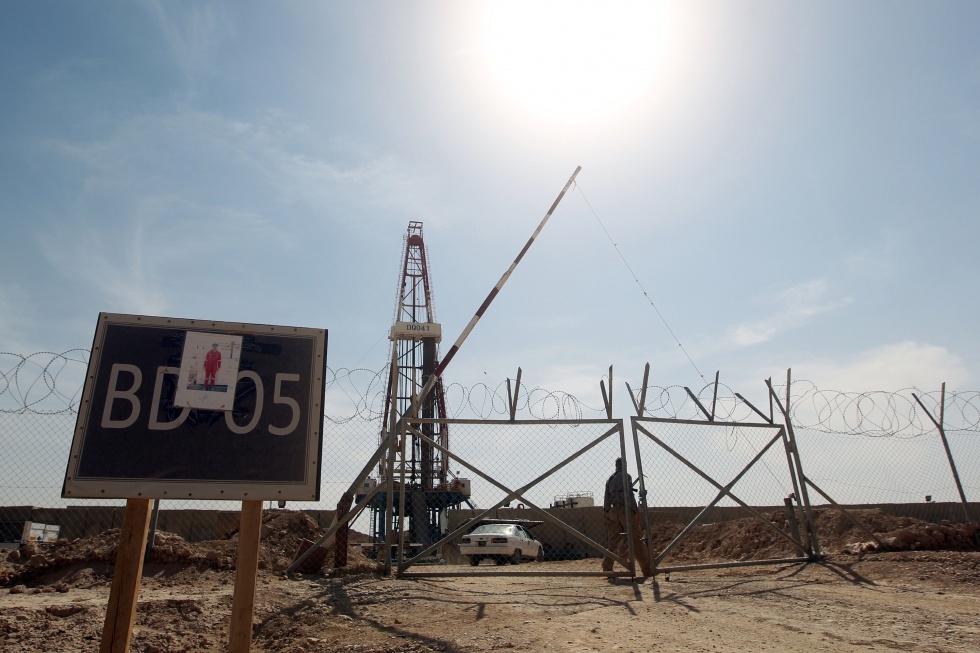Unrest in Iraq and the oil market

The dramatic insurgency by ISIL in Iraq has inevitably created nervousness in the oil market. However, on the face of it, little should be affected in the near term. In April, Iraqi oil production averaged 3.34 million barrels per day (mnbd) of which 2.51 mnbd were exported. However, all of these exports were from the South which, so far at least, has not been affected by the encroachments of ISIL. In any case, before the insurgence hit the headlines, Iraqi production was struggling, following poor maintenance and constraints of infrastructure. In February, production had been 3.6 mnbd.
This situation of limited impact on current global supply is unlikely to change unless Baghdad loses complete control and Sunni ISIL forces are able to operate on a hit and run basis in the Shi’a dominated South. Oil operations in the North are arguably more vulnerable although Kurdish forces should be able to contain ISIL and in any case oil exports from the North ceased at the start of March following the sabotage of the main export pipeline. So far, at least, the oil markets have reflected this reality with very little reaction from prices. The day before the fall of Mosul, the OPEC basket price stood at $104.73 and 11 days later on the 16th June it had only reached $109.09.
In the longer term the consequences for oil markets could be more interesting. Over the last few years, Iraq has been struggling to increase production by using the international oil companies (IOCs). However, even before the recent events the IOCs had been losing interest. A number had signed “service type contracts” to develop existing finds. These contracts were distinctly unattractive and the IOCs only agreed in the expectation that Baghdad would get its political act together, pass the Petroleum Law that was hovering around Parliament, and allow upstream access on a risk sharing basis. This was clearly not happening and a number of the IOCS effectively withdrew and others are pressing to renegotiate the terms. The recent events will certainly cause IOC interest to further cool. Iraq’s official projections of large increases in production (9.5 mnbd by 2017) now look even more hopelessly unrealistic than they did before.
However, there is potentially an even bigger impact following Baghdad’s loss of control. Over the last few months it has become apparent that the United States desperately needs to get agreement with Iran over their nuclear programme. If there was to be any hope of solving some of the region’s political problems – and this relates most immediately to Syria – then Iran had to be inside the tent cooperating and not outside stirring things up. Given the current state of Iraq, this is even more important than several weeks ago. Equally, Iran desperately needs an agreement to remove sanctions which are rapidly strangling the Iranian economy in a way that will lead to growing domestic unrest.
Events in Iraq now make it unthinkable that agreement will not be reached, including the removal of sanctions. This will enable Iran to open its upstream to urgently needed IOC investment leading to much greater future supplies although this will take several years before the numbers will be significant. There is much damage to the Iranian fields and infrastructure to be repaired. How soon Iranian production might rise depends upon how realistic the Iranians’ new terms for upstream access will be. This matters because Mexico (amongst other prospective oil producers) is now opening its upstream to IOC investment and competition for funds will be strong.
A final area of possible oil market impact concerns Saudi Arabia’s oil policy. There have been rumblings over the last year or so regarding the Kingdom’s poor relations with Washington following the overthrow of Mubarak, the failure to stop Assad and the recent deal in Geneva with Iran. If the United States and Iran now conspire to keep the hated (by Riyadh) Maliki in power this could cause a further deterioration in relations.
Riyadh, so dependent upon the United States’ military umbrella, has limited policy options to respond. One possibility would be to bring oil prices right down which the Saudis have the power to do very quickly. This would damage Iran and Iraq both of whom are desperate for immediate revenues. It would also put at risk the American drive for “energy independence” by undermining the continued growth of tight oil production. While lower prices would also threaten Saudi oil revenues, they have a large accumulated financial pot to ride out short to medium term revenue constraints. Also, often in the Kingdom, emotion overrides economic logic.
-Paul Stevens is Distinguished Fellow (Energy) at Chatham House and professor emeritus at the University of Dundee. He also works as a consultant for many companies and governments. In March 2009 he was presented with the OPEC Award in recognition of his outstanding work in the field of oil and energy research.
The views expressed in this article belong to the author and do not necessarily reflect the editorial policy of Middle East Eye.
Photo credit: A drilling platform at an oilfield near the Iraqi city of Badra, south of Baghdad, on October 18, 2012 (AFP)
New MEE newsletter: Jerusalem Dispatch
Sign up to get the latest insights and analysis on Israel-Palestine, alongside Turkey Unpacked and other MEE newsletters
Middle East Eye delivers independent and unrivalled coverage and analysis of the Middle East, North Africa and beyond. To learn more about republishing this content and the associated fees, please fill out this form. More about MEE can be found here.




